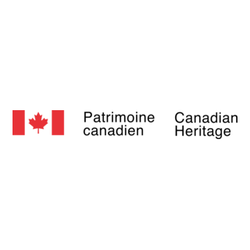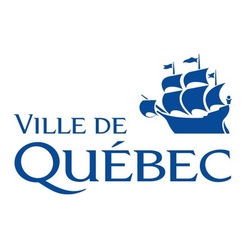
Open
Indigenous cultural partnership
Last Update: October 27, 2025
QC, Canada
Supports preservation and promotion of Indigenous cultures and languages
Grant and Funding
At a glance
Funding available
Financing goals
Develop strategic partnerships
Raise awareness and mobilize the public
Increasing community impact
See more
Eligible Funding
- Maximum amount : 1,500,000 $
- Minimum amount : 5,000 $
- Up to 75% of project cost
Timeline
- Unspecified
Eligible candidates
Eligible Industries
- Information and cultural industries
- Arts, entertainment and recreation
Location
- Quebec
Legal structures
- Non-profit
- Public or Parapublic institution
Annual revenue
- All revenue ranges
Organisation size
- All organization sizes
Audience
- Indigenous Peoples
- Rural or Northern Residents
Non-profit candidates
Sector of operation
- Culture and Arts
- Diversity and Inclusion
Target groups
- Indigenous peoples
- Rural / Remote communities
- Artists / creatives
- Community leaders
Revenue structures
- All structures
Scope
- Local
- Regional
- Provincial
- National
Overview
The Indigenous Cultural Partnership program in Quebec supports the preservation, transmission, and promotion of Indigenous cultures and languages, with funding of up to $400,000 per year (or up to $1,500,000 per year for northern and isolated nations). Eligible activities include developing cultural initiatives, hiring professional resources, training, and the creation and dissemination of cultural projects benefiting Indigenous communities.
Activities funded
- Initiatives supporting the preservation, transmission, and promotion of Indigenous cultures and languages.
- Implementation of cultural action plans tailored to the needs of specific Indigenous nations, communities, or organizations.
- Development and delivery of cultural activities for Indigenous populations, such as workshops, traditional knowledge sharing, or events accessible to community members.
- Hiring of dedicated human resources or providing training to enhance cultural capacity within Indigenous communities or organizations.
- Temporary cultural projects utilizing facilities or special equipment to facilitate cultural activities, excluding permanent infrastructure.
Eligibility
- The applicant must be one of the 11 Indigenous nations of Québec recognized by the National Assembly or represented by a designated Indigenous national body responsible for culture or language.
- Eligible applicants include Indigenous cultural organizations operating in urban Indigenous contexts or across several nations, whose activities contribute to preserving, transmitting, or promoting Indigenous cultures or languages in Québec.
- Indigenous communities that are part of the 11 recognized Indigenous nations of Québec are eligible.
- The proposed project must align with the program's objectives, such as preserving, transmitting, or promoting Indigenous cultures or languages.
- The applicant must designate a human resource to ensure implementation and maintain control measures for sound management and accountability.
Who is eligible?
- Designated Indigenous national bodies responsible for culture or language preservation, transmission, or promotion
- Indigenous cultural organizations working with multiple nations or in urban Indigenous contexts
- Indigenous communities that are part of the 11 Indigenous nations of Québec recognized by the National Assembly
Who is not eligible
- Individuals (not incorporated or organized as eligible Indigenous entities).
- Non-Indigenous organizations.
- For-profit organizations.
- Non-Indigenous governmental organizations.
- Applicants registered with the Register of companies not eligible for public contracts (RENA), including subcontractors listed in RENA.
Eligible expenses
- Salaries and benefits for professional and technical resources exclusively hired for the partnership (up to $60,000 gross annual salary per resource).
- Training costs for hired staff (including technical, professional, college or university courses, and participation in conferences, forums, or gatherings).
- Contract fees for business or service providers.
- Professional fees for studies or diagnostics.
- Expenses for training, writing, language revision, translation, research, graphic design, printing, promotion, advertising, marketing, and communication related to delivering the action plan (e.g., production of posters, brochures, books, or magazines).
- Cost of materials needed for the implementation of the action plan.
- Rental costs for external premises necessary for project activities.
- Purchase of non-integrated equipment required for project delivery (if purchase is essential and cannot be rented, or is less expensive than rental), limited to 50% of project costs unless for digital projects.
- Purchase of tickets for performances as part of projects targeting Indigenous populations and linked to broader initiatives.
- Fees for artists for facilitation, cultural mediation, training, or creative/dissemination activities benefiting the Indigenous population.
- Non-refundable portion of the Québec Sales Tax (QST) and Goods and Services Tax (GST/HST) incurred on eligible expenses.
- Travel and accommodation expenses within Québec directly related to the project and the mandate of hired project staff, within public sector rate limits.
Eligible geographic areas
- Quebec
Selection criteria
- Relevance: Alignment of the proposed partnership with the program’s objectives and government/ministerial guidelines regarding culture and communication.
- Applicant's ability to complete activities: Availability of necessary human resources, sound governance, strong financial management, and collaboration with partners.
- Quality of the action plan: Clear objectives, realistic budget and timelines, and effective links between objectives, actions, resources, and expected outcomes.
- Expected outcomes: Degree of alignment with the needs of the nation or community, anticipated cultural/social/economic/environmental impacts, and the proportion of members affected.
- Prioritization: Priority is given to applications from nations and new applicants; applications are scored and prioritized according to a points scale (80%–100%: priority 1, 60%–79%: priority 2, below 60%: not accepted).
How to apply
1
Contact the regional office
- Contact the regional office of the Ministère de la Culture et des Communications before preparing your application
- Obtain guidance tailored to your project and eligibility
2
Complete initial application
- Complete the initial application specifying the desired agreement duration (1, 2, or 3 years)
- List proposed actions, costs, allocated amounts, and target audience
- Indicate the total financial assistance requested and contributions from the applicant and partners
- Ensure all information is accurate and complete
3
Submit initial application and documents
- Submit the completed initial application via the di@pason online service platform or, if needed, by paper form to the relevant regional office
- Attach all supporting documents, including the resolution regarding the application, signed Terms for granting financial assistance, and any relevant documents
4
Receive eligibility confirmation
- Wait for confirmation of eligibility within a maximum of 10 business days after submission
- If eligible, prepare for the next phase of application review and possible further requests from the Ministry
5
Complete detailed action plan
- If initial application is accepted, receive a financial proposal from the Ministry
- Complete the detailed action plan specifying objectives, actions, and financial resources to be committed
- The Ministry may assist in preparing the detailed action plan
6
Submit detailed action plan
- Submit the completed detailed action plan to the Ministry
- Ensure all documents are updated and any requested clarifications are provided
7
Wait for funding decision
- Wait for final review and funding decision from the Ministry
- Applications are assessed based on relevance, applicant's ability, quality of action plan, expected outcomes, and other criteria
Additional information
- Beneficiaries must recognize the Ministry's contribution in all public communications related to subsidized actions, following government visibility rules.
- A program evaluation using predefined indicators will occur by November 30, 2027.
- The program is valid until March 31, 2027, subject to available funds and potential changes by the government.
- Accountability must follow a results-based management approach, including annual progress and financial reporting.
Apply to this program
Frequently Asked Questions about the Indigenous cultural partnership Program
Here are answers to the most common questions about the Indigenous cultural partnership. This section explains what the program is, how much funding is available, eligibility requirements, application deadlines, and other important details to help you determine if this grant is right for your business.
What is the Indigenous cultural partnership?
How much funding can be received?
Who is eligible for the Indigenous cultural partnership program?
What expenses are eligible under Indigenous cultural partnership?
Where is the Indigenous cultural partnership available?
Is the Indigenous cultural partnership a grant, loan, or tax credit?
Who are the financial supporters of the Indigenous cultural partnership?
Apply to this program
More programs like this

Grant and FundingOpen
Export and cultural visibility support program
Société de développement des entreprises culturelles (SODEC)Financing for Quebec cultural exports

Grant and FundingOpen
Additional support for the circulation of shows
Société de développement des entreprises culturelles (SODEC)Financial support for touring Quebec music and comedy shows

Grant and FundingOpen
Canada Cultural Investment Fund - Endowment Incentives
Canadian HeritageSupports arts organizations by matching private donations to endowment funds

Grant and FundingOpen
Support for music and variety companies — Component 2: Support for management activities and Component 3: Para-industrial sector - Project support
Société de développement des entreprises culturelles (SODEC)Financial support for Quebec's music and variety industries

Grant and FundingOpen
Capitale-Innovation
Quebec CitySupports business innovation, commercialization, and market expansion projects

Grant and FundingOpen
REGI — Business Scale-up and Productivity — CED (QC) — Not-for-profit
Canada Economic Development for Quebec Regions (CED)Funding for business innovation and growth through CERI program

Grant and FundingClosed
Anti-Racism Action Program
Canadian HeritageSupports initiatives addressing racism, discrimination, and social barriers

Grant and FundingClosed
Music management and publishing assistance
Société de développement des entreprises culturelles (SODEC)Supports Quebec music managers and publishers in career development

Grant and FundingClosed
SODEC — Support for book and publishing companies – Component 1
Société de développement des entreprises culturelles (SODEC)Support for Quebec book and publishing companies

Grant and FundingClosed
Promotional assistance for music and entertainment companies
Société de développement des entreprises culturelles (SODEC)Supports promotion and marketing for Quebec music and entertainment companies
Sign up to our platform to access the Indigenous cultural partnership information sheet for free
Get access to 4,000+ programs, practical guides, personalized alerts, and an AI assistant to support your grant applications.